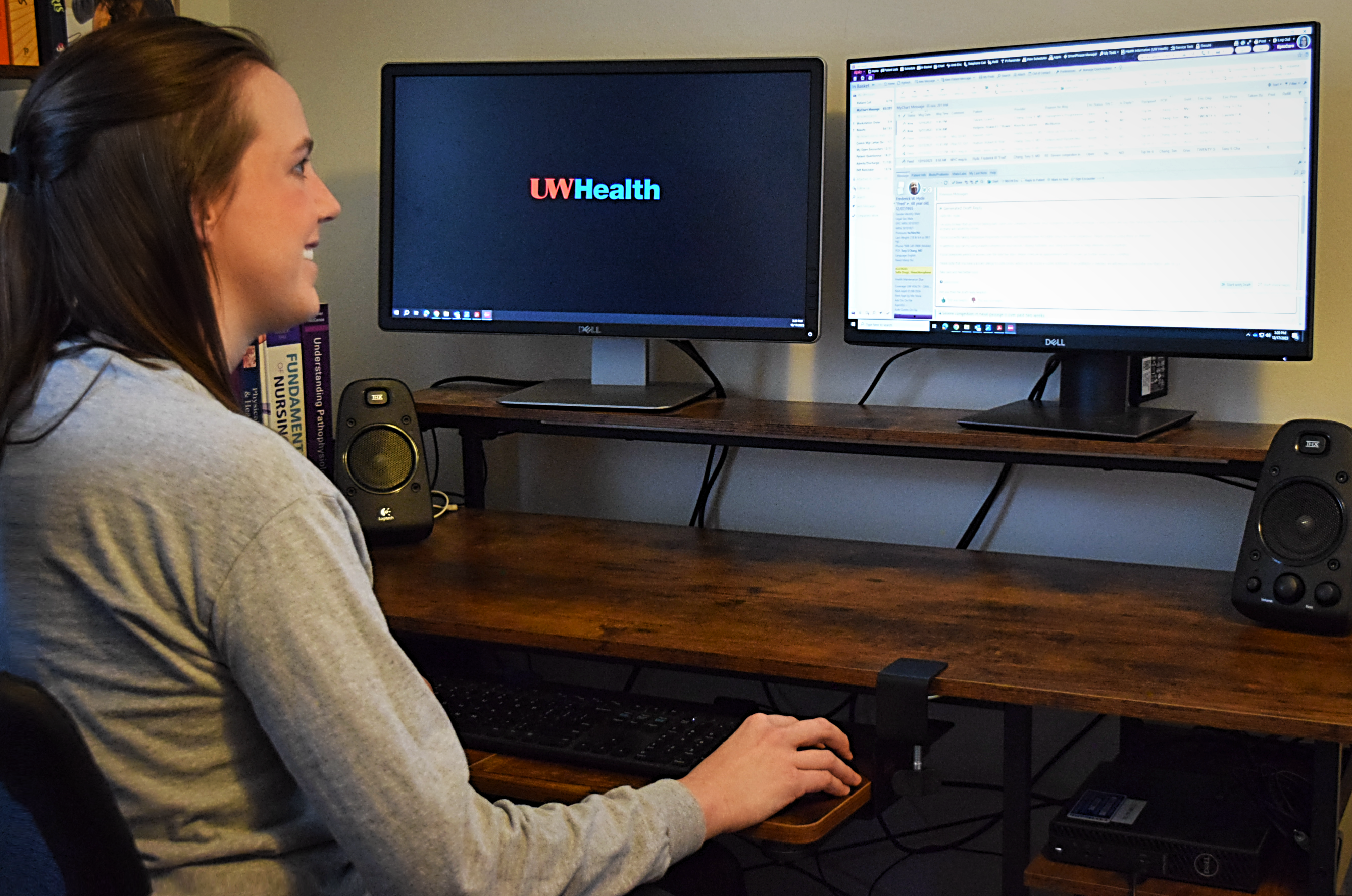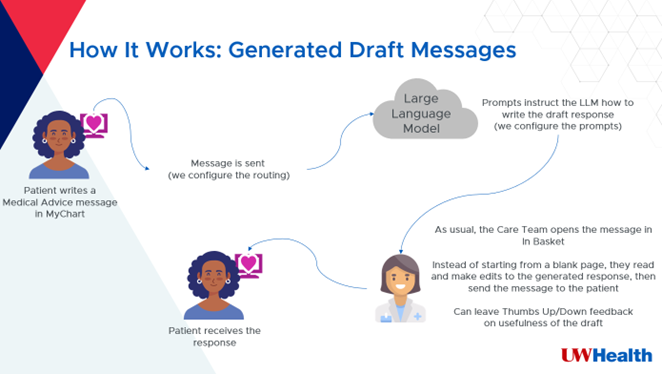On the leading edge of technology: Generative AI in nursing

UW Health is committed to leveraging technologies to ease the demands nurses face every day. Early 2023 saw the rise of a revolutionary technology — generative artificial intelligence (AI) — and the potential it has in transforming the delivery of patient care, improving operational efficiency, reducing cognitive burden and streamlining administrative processes.
In April 2023, UW Health entered a partnership with Microsoft and Epic Systems introducing generative artificial intelligence (AI) to the organization as a unique development opportunity to explore within health care, and specifically in nursing care.
The complexities of considering the use of generative AI at UW Health have required a thoughtful and strategic approach to determine how best to apply this advanced technology. “Generative AI is evolving at a rapid pace and will be widely adopted in the years to come,” said Becky Kohler, MPH, RN-BC, chief nursing information officer. “Within the profession of nursing, this technology requires a proactive RN influence and active RN voice to ensure it is a safe, effective and meaningful solution.”
UW Health as an early adopter
In the past three years, the rise in virtual health care visits has caused an increase in the use of digital communications in health care. According to a study in the Journal of the American Medical Informatics Association, the volume of electronic messages sent to health care providers has increased by 157% compared to pre-COVID levels. In 2022, UW Health administered a survey to obtain end-user feedback on Health Link (electronic health record software powered by Epic). The message volume in the In Basket communication hub (used to send and receive messages) was one of the top items clinicians asked to be addressed.
In September 2023, the first cohort of UW Health ambulatory nurses started a trial use of generative AI in the ambulatory clinic setting within the In Basket section of Health Link. The specific AI technology used in this instance is a large language model (LLM), which enables users to refine and steer a conversation toward a desired length, format, style, level of detail and language. For this trial, when a patient sends a message to the care team, the LLM (via ChatGPT software) generates a recommended nursing response instead of the clinic RNs manually typing the responses. Clinic nurses tested this model and provided valuable feedback on the functionality.
“Nurses are guiding and leading the use of this very new and emerging technology,” said Shelly Key, RN manager, Health Link and ambulatory operations. She explained that the testing process involves nurses using the LLM responses in their day-to-day work by watching for incoming messages from patients via MyChart, and determining if the generated AI response is helpful. “Some of the data we’re collecting is showing that nurses are using the technology more than providers, and are using at least half of the generated message.”

Nurses help shape the technology
While the technology is showing promise in creating a more efficient process, the role of the RN is vitally important. Nurses apply their clinical expertise and judgment in reviewing each message to determine if it’s accurate, needs editing or should be discarded and completely rewritten.
“Nurses who are trialing the technology send real-time feedback to the team along with the themes they’re seeing,” Shelly said. “We collect that information, share it with Epic and work with them to enhance the tool. All of this is being done in a controlled manner — monitoring it closely and regularly engaging clinical team members for feedback — to make sure it’s safe and effective.”
The goal for 2023 was to partner with nurses in the development and creation of a safe and effective tool that can be seamlessly integrated into the nursing workflow.
Future opportunities for nursing
It is important that nurses continue to be part of the development and trial of generative AI solutions so that the unique workflows and considerations of nursing practice and licensure are factored in.
“Partnering in the In Basket trial opens up doors for what’s coming in 2024,” Becky said. “In early 2024, a handful of inpatient nurses will trial generative AI to draft end-of-shift notes. We wouldn’t be able to advance this leading-edge work and technology without nurse involvement, which speaks volumes to the incredible value of RN voices.”
Check out more stories featuring the great work of our nurses in the 2023 Nursing Year in Review (pdf).
